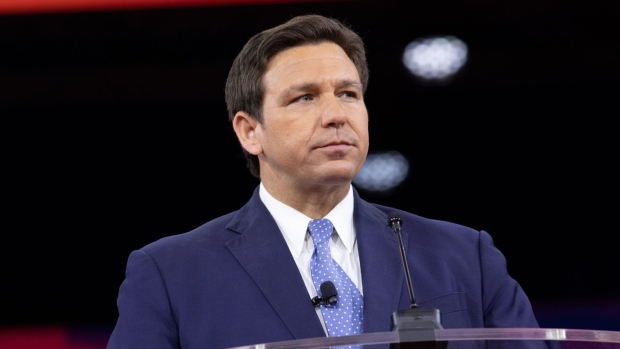May 23, 2022
Florida Social Media Law Is Partially Blocked After Federal Appeal
, Bloomberg News

(Bloomberg Law) -- Social media companies are private actors whose rights are protected by the First Amendment, a three-judge panel of the Eleventh Circuit ruled Monday, upholding part of an injunction against a Florida law penalizing social media companies for banning political candidates from their platforms.
But the state has a legitimate interest in ensuring that a platform’s users “aren’t misled about platforms’ content-moderation policies,” the appeals court said, blocking part of the preliminary injunction ordered June 30 by Judge Robert Hinkle pertaining to the companies’ disclosure obligations.
“Put simply, with minor exceptions, the government can’t tell a private person or entity what to say or how to say it,” the appeals court said in an opinion signed by Judge Kevin Newsom of the US Circuit Court of Appeals for the Eleventh Circuit.
The companies’ ” so-called ‘content moderation’ decisions constitute protected exercises of editorial judgment,” the court said.
“We further conclude that it is substantially likely that one of the law’s particularly onerous disclosure provisions—which would require covered platforms to provide a ‘thorough rationale’ for each and every content-moderation decision they make—violates the First Amendment,” the court said.
But the court lifted the preliminary injunction against the law’s other disclosure provisions regarding publishing a platform’s standards, changes to a platform’s rules, view counts, free advertising for candidates, or a user’s access to their data after receiving notice of removal from a platform.
Hinkle found the law signed May 24, 2021, by Gov. Ron DeSantis (R) violated the First Amendment and didn’t apply equally to all social media providers.
The law (S.B. 7072) had been one of DeSantis’ legislative priorities last year. It would impose $250,000 daily fines on social media companies that block a statewide candidate for more than 14 days. Blocking candidates in local elections would carry a $25,000 daily fine.
It would let individual users seek up to $100,000 in damages for claims that a platform’s content standards weren’t applied consistently to their posts or profiles.
While promoting the measure, DeSantis and Florida’s Republican-led Legislature cited Twitter’s permanent suspension of former President Donald Trump, and YouTube’s removal of a panel DeSantis hosted with scientists who opposed masks and business closures during the pandemic. They also said social media platforms function as public spaces and so must remain open to all.
“These platforms essentially assert that in their interactions with users they are a law unto themselves, assuming the authority to silence whomever they want,” attorneys for the state said in a Dec. 20 brief.
“Nothing in federal law requires States to meekly stand by when private interests assert such authority to restrict the ‘free flow of information and ideas.’”
The Computer & Communications Industry Association and NetChoice sued the state in May 2021. The trade groups’ members include Twitter Inc., Facebook Inc., Amazon.Com Inc., Google, and Pinterest.
The law firm Cooper & Kirk PLLC represents defendant Patrick Gillespie, deputy secretary of business operations for the Florida Department of Management Services. The other defendants are Florida Attorney General Ashley Moody and members of the Florida Elections Commission.
CCIA and NetChoice are represented by the law firms Kirkland & Ellis LLP, DLA Piper, and Wilson Sonsini Goodrich & Rosati P.C.
The tech trade groups also have challenged a 2021 Texas law restricting content moderation by social media companies, which they allege would force them to host extremist content. Earlier this month, the Fifth Circuit put on hold a temporary injunction against key parts of the law that a lower-court judge issued in December.
The tech groups filed an emergency request to the US Supreme Court seeking to block the Texas law.
The Florida case is NetChoice v. Moody, 11th Cir., No. 21-12355, 5/23/22.
To contact the reporter on this story: Jennifer Kay in Miami at jkay@bloomberglaw.com
To contact the editors responsible for this story: Tina May at tmay@bloomberglaw.com; Carmen Castro-Pagán at ccastro-pagan@bloomberglaw.com
©2022 Bloomberg L.P.





